Iranian Chess Referee Accuses Governing Body Of Succumbing To Politics

Iranian chess referee Shohreh Bayat says the game's global body has kicked her off a commission because of a gesture of solidarity with protests in Iran.

Iranian chess referee Shohreh Bayat says the game's global body has kicked her off a commission because of a gesture of solidarity with protests in Iran.
The feud with the International Chess Federation (FIDE) occurred after Bayat wore a T-shirt bearing the main motto of the current wave of antigovernment protesters "Women, Life, Freedom" at a tournament in Iceland in October, soon after rallies began following the death in custody of 22-year-old Mahsa Amini.
The 35-year-old international referee, who is among a string of sports figures to clash with authorities over the mandatory hijab policy and express solidarity with anti-government demonstrators, told Reuters that "I don't think it's normal to stay quiet about this,"
She noted that the FIDE had removed her from its arbiters' commission after she angered its President Arkady Dvorkovich, a former Russian deputy prime minister from 2012 to 2018.
Bayat, who was also accused by Iran of violating hijab practice at a tournament in 2020, said Dvorkovich asked her to change her attire in Iceland. She reappeared at the tournament in a yellow suit and blue blouse: the colors of the Ukrainian flag. FIDE confirmed Dvorkovich had requested she not wear the shirt about women's rights.
Bayat accused Dvorkovich of succumbing to geopolitics, saying, "Iran and Russia are very united in the war against Ukraine. When I was told by Dvorkovich to take off my T-shirt, that was the reason probably. My T-shirt was not political at all ... It's one of the most beautiful women's rights messages in the world."
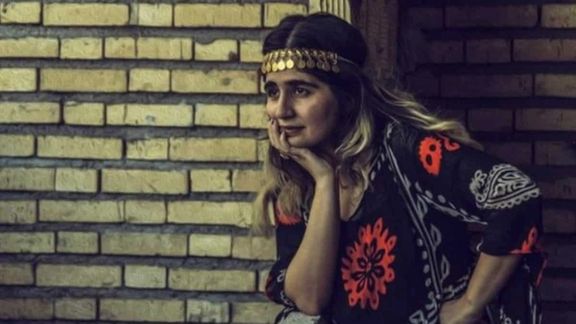
An educational facility at Tehran’s Evin Prison is being used as a place of interrogation of detained protesters and extraction of forced confessions.
In a letter smuggled out of the prison to Iran International from, political prisoner Sepideh Qolian has recounted what she personally witnessed at the “Education Building”, which used to serve prisoners studying when she was taken to the facility by a guard to take an exam.
“The young boy swore that he had not beaten anyone (security forces) but they wanted a confession from him. Don’t say anything. For God’s sake, don’t say anything [that is not true], I told him … The female guard shut my mouth and dragged me away,” she wrote in the letter.
Qolian and Esmail Bakhshi, labor activists, were tortured into so-called confessions after being arrested in November 2018 during labor protests in southwestern Khuzestan province. In January 2019, the state television’s infamous 8:30 program aired their “confessions”.
The pair were tortured into saying they belonged to a diaspora Marxist group. Both later denied what they had said on camera. Qolian also had to “confess” that she had shot videos and photos during the protests of January 2018 and sent them to the media outside Iran which the authorities always refer to as “enemy” or “hostile” media.
“It felt as if I had completely lost my volition and consciousness after three consecutive days or even more of being kept awake, being interrogated, and being locked up in a toilette. I took the text that had been prepared [by the interrogators] and read from the paper in a half-conscious state. Reading every line felt like the sound of another lash hitting my body and soul,” she wrote in the letter that was received by Iran International.
In 2019, Qolian who was held at Qarchak Prison at the time saw the video of her own confessions on television and realized that the presenter, Ameneh Sadat Zabihpour, was the same female interrogator who her other interrogators called Ms Askari.
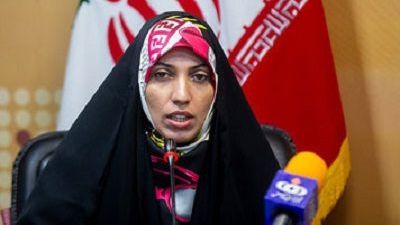
Subsequently, in a series of tweets Qolian spoke about her ordeal and said the texts that she and others were made to read in front of the camera were prepared by Zabihpour.
Qolian who has been in and out of prison several times took legal action against Zabihpour but says the case was dropped by the authorities within hours from the registration of her complaint. Instead, she was sentenced to eight months in prison herself, in addition to her previous sentences, for daring to make such a complaint against Zabihpour.
Zabihpour who has come to be known as ‘journalist-interrogator’ in the media has been presenting the IRIB’s 8:30 program together with Ali Rezvani, for several years. The program is infamous for its smear campaigns against both domestic and foreign-based opposition and airing of forced confessions.
The United States and the European union have both sanctioned the IRIB for its role in human rights violations. In November 2022 the US Treasury’s Office of Foreign Assets Control (OFAC) also designated Ameneh Sadat Zabihpour and Ali Rezvani for cooperating with the intelligence ministry and the IRGC’s intelligence organization (SAS).
The IRIB has in the past four decades aired the so-called ‘confessions’ of numerous people from every walk of life, from top politicians to activists, from social media influencers to ordinary criminals, from individuals charged with economic corruption to the family members of those accused of a crime or those whose statements could corroborate the claims by authorities in any regard.
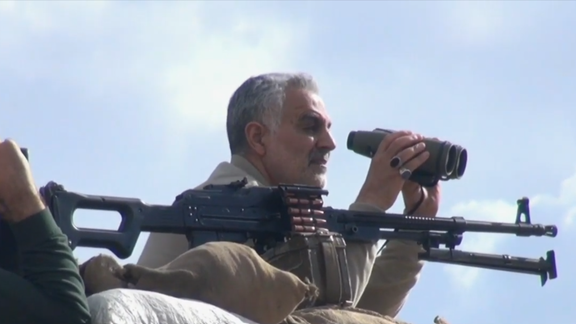
Reports say schoolchildren in some mosques in the UK were taught special lessons in praise of Iranian IRGC Quds Force commander Qassem Soleimani.
At least six mosques across the country organised events to honour the former Commander of IRGC Quds Force as a “martyr” after he was killed.
On January 3, 2020, the US military, on the order of President Donald Trump, killed Soleimani in a drone strike near Baghdad International Airport, saying that he had been "actively developing plans to attack American diplomats and service members in Iraq and throughout the region."
Photographs posted on social media show children sitting in an unnamed mosque while being taught about Soleimani.
Reports say at the Idara-e-Jaaferiya mosque in Tooting, South London, and in Hammersmith, West London, Iranian officials made speeches praising the IRGC commander days after his death.
In Manchester, the Islamic Institute said it was holding a “commemoration of the martyrs” killed by “the aggressor and criminal US regime”.
In Birmingham, the Imam Reza Centre said it was honouring “our beloved martyrs” Soleimani and Abu Mahdi al-Mohandis, an Iraqi militia commander who died alongside him.
The revelation comes as UK lawmakers voted Thursday to ask the government to designate the IRGC as a terrorist organisation.
Soleimani, who was Iran’s top military and intelligence operator outside its borders, was in charge of supporting and organizing militant proxy forces, including the Lebanese Hezbollah and Iraqi Shiite militia groups that have repeatedly attacked US forces.
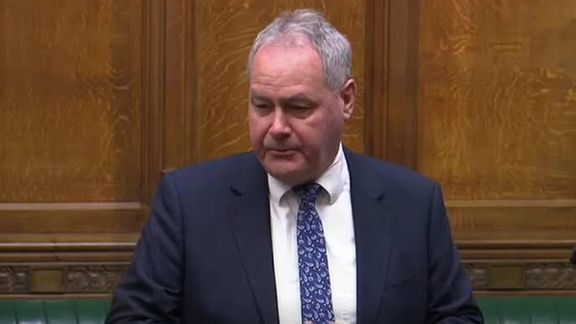
Members of the UK House of Commons on Thursday unanimously voted for a motion that urges the UK gov't to proscribe Iran's IRGC as a terrorist organization.
While the vote is not binding, it indicates British lawmakers' increasing pressure on the government to respond to violence against protesters in Iran by security forces mainly controlled by the Revolutionary Guard.
So far, a combination of IRGC personnel, their Basij militia, intelligence agents and regular police commanded by top IRGC generals have killed around 500 civilians and maimed hundreds of people. Four protesters have also been executed after sham trials.
Opening the discussion, Bob Blackman, a member of the ruling Conservative Party, said the IRGC should be added to the list of proscribed terrorist organizations.
"I urge UK government to proscribe IRGC as terrorist organization and work with counterparts to ensure further sanctions on Iran without delay... Suppression of speech against Iran's regime mimics the rise of the Nazis. We must act before it reaches such level."
Blackman said that the UK should “refer the [Iranian] regime’s appalling dossier of systematic violations of human rights and crimes against humanity to the United National Security Council for adoption of binding and deterrence measures.”
The IRGC should be proscribed “in its entirety,” Blackman added, echoing the words of then United States Secretary of State Mike Pompeo who announced the US listing of the IRGC as a ‘foreign terrorist organization’ as part of its ‘maximum pressure’ sanctions against Iran when the US in 2018 left the Iran nuclear agreement of 2015, the JCPOA (Joint Comprehensive Plan of Action).
‘A bunch of clerical fascists’
John Cryer, a Labour MP, called the IRGC “a bunch of clerical fascists who rape, kill, maim their way around Iran and outside Iran's borders.” Conservative Bob Stewart said that “if any of us were to make a speech like we've made this morning or this afternoon in Iran, we’d be dead meat very quickly.”
Labour MP Fleur Anderson said the UK should offer visas to female Iranian protest leaders and those given death sentences. John McDonnell, close associate of former Labour leader Jeremy Corbyn, called for closing the Iranian embassy and expelling Iranian diplomats.
The push in Europe to list the IRGC as a terrorist organization goes beyond the UK. Many German and Austrian politicians are keen to pursue the issue with the European Union, which will probably discuss it in a meeting next week.
Foreign Office minister Leo Docherty told MPs the IRGC was “already sanctioned as an organization,” as were some of its individual members, although it was not proscribed as a terrorist organization. Docherty said government consideration of the issue was “active” and refused to “pre-empt any formal announcement…”
A report to government from Jonathan Hall, a King’s Counsel, highlighted some of the issues involved in proscribing part of the armed forces of a sovereign state, Independent Online reported Thursday. Hall warned given the state is conventionally considered to “enjoy a monopoly over the legitimate use of violence,” this would “depart from consistent and decades-long UK policy.”
‘Upsetting the settled meaning of terrorism’
British legislation and implementation derives from the 2020 Terrorism Act, which defined terrorism as “serious violence against a person” or “serious damage to property” designed “to influence the government, or an international governmental organization or to intimidate the public” based “on a political, religious, racial or ideological cause.”
While Hall’s arguments rest on the difficulties of extending legislation based around non-state organization to state bodies, Amnesty International has long argued that the ‘terrorism’ definition is itself unworkable, and that its vagueness and breadth leave “scope for political bias in making a decision to bring a prosecution.” The UK’s current list of 78 proscribed terrorist organizations includes Hamas, Hezbollah, and the Kurdistan Workers Party (PKK). Listing, which is done extrajudicially by the interior minister (home secretary) makes membership, giving financial support, or displaying the group’s logo or flag a criminal offense. The MEK was removed from the list in 2008.
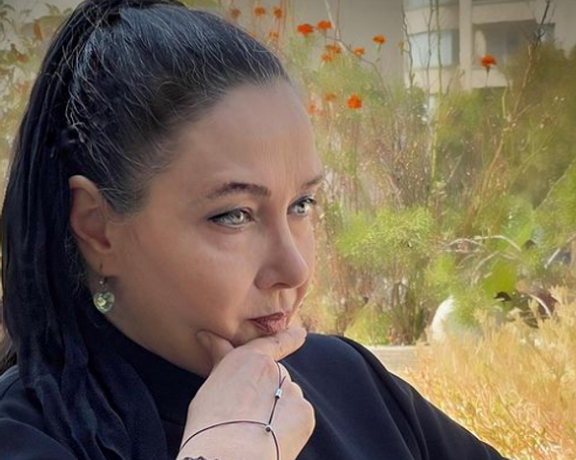
Iranian Independent Filmmakers Association says the regime has held a sham trial for actress Katayoun Riahi, arrested in November, to obtain a forced confession.
Riahi’s trial session, a popular Iranian actress who had earlier removed her mandatory hijab to express solidarity with the anti-regime demonstrations, was held on Wednesday.
During the trial and being filmed she was pressured to confess to political crimes and apologize. Riahi, unable to bear the relentless psychological torment, passed out and was taken to hospital by ambulance.
The court session, which was held abruptly with a change of date and in front of several cameras, met with widespread criticism.
Adeleh Cheraghi, the spokesperson of the association, said that Katayoun Riahi was asked to apologize and express regret to the authorities of the Islamic Republic for removing the mandatory hijab, in the presence of the state media reporters, possibly to broadcast later. According to Cheraghi, she refused to do so.
Movie star, Hamid Farrokhnejad also slammed the move to obtain coerced confessions from the actress.
"You imagine a video of someone, who apologized to you under threats, is a proof of your righteousness! How miserable you are!” he wrote on his Instagram addressing the government.
"People have decided that you must go, and you will. This way you just make yourself more pathetic," he added.
Security agents also confiscated a large part of her belongings, including her laptop in October when she was not home.
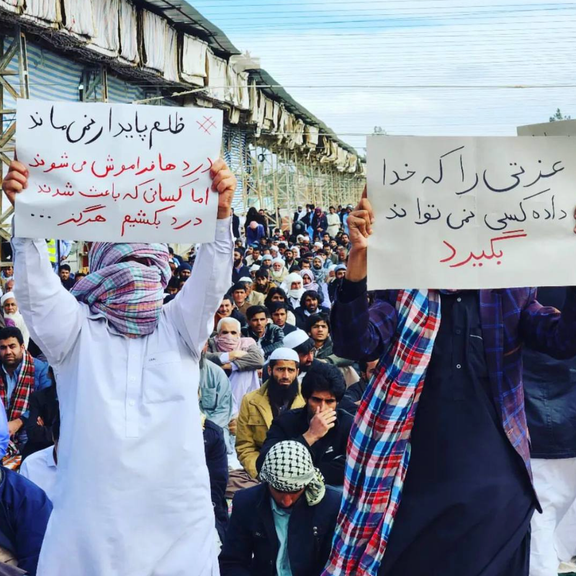
Human Rights Watch says Iran’s regime has used excessive and lethal force in the clampdown on nationwide protests that broke out in September 2022.
In its World Report 2023 published Thursday, Human Rights Watch said Iranian authorities have detained hundreds of activists on “dubious charges” and issued death sentences in “grossly unfair trials”.
The acting executive director of Human Rights Watch (HRW) Tirana Hassan announced in the report that the protests against the mandatory use of the hijab are just the most visible symbol of repression.
"The demand for equality triggered by women and schoolgirls has morphed into a nationwide movement by the Iranian people against a government that has systematically denied them their rights, mismanaged the economy, and driven people into poverty," she underlined.
The 712-page report looks at the state of human rights in about 100 countries where the organization works.
The death of Mahsa Amini in the custody of the morality police in mid-September sparked nationwide demonstrations, including in schools and universities.
Human Rights Watch says security forces have used shotguns, assault rifles, and handguns against protesters.
“With mass repression, unfree elections, and apparent corruption and mismanagement, Iran’s autocracy rules with all that remains: brute force,” said Tara Sepehri Far, senior Iran researcher at Human Rights Watch.
“Other countries, including from the Global South, should increase pressure on these brutal authorities and ensure there is accountability for their crimes,” she added.
Over 500 people have been killed by the regime forces since the beginning of protests.